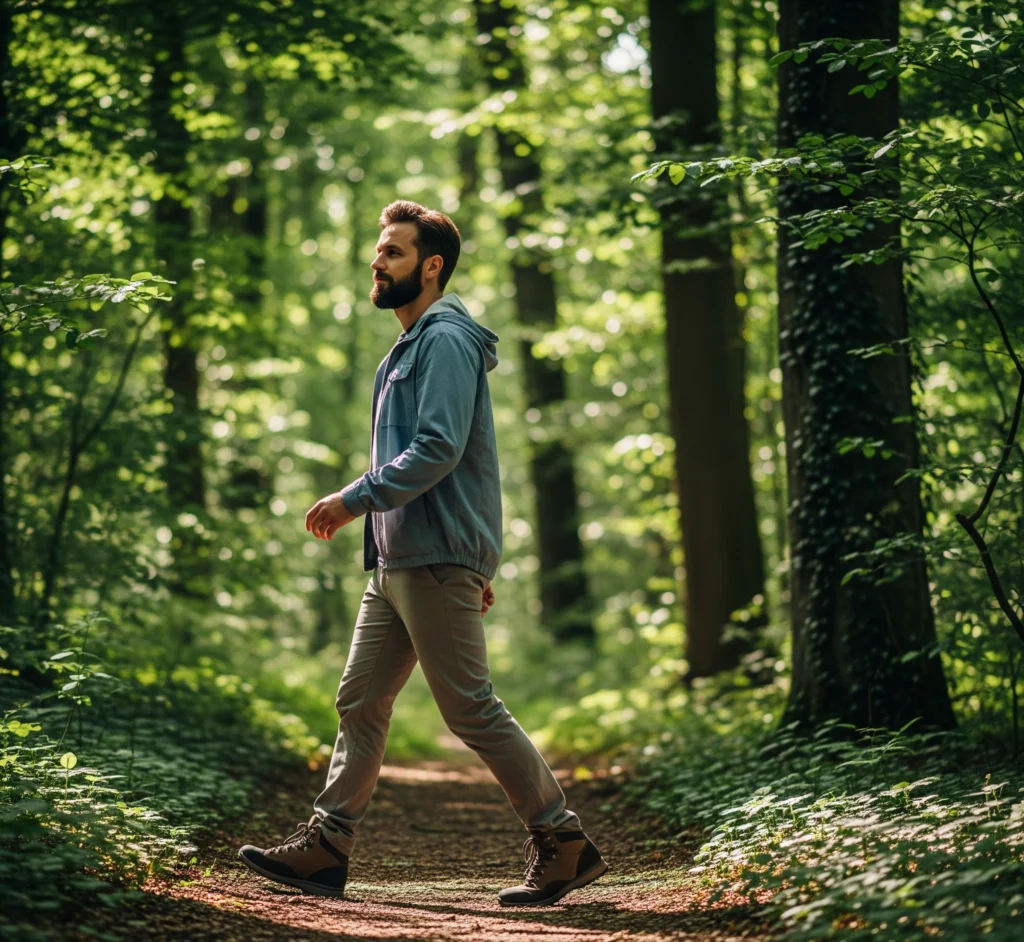Why Doing Nothing is the New Productivity
The End of the Productivity Cult
For decades, we’ve been trapped in the cult of productivity. We’ve been told that success equals hustle, that every moment must be optimized, and that idle time is wasted time. The mantra of “work harder, work longer, work smarter” has dominated our lives, creating a generation that feels guilty about any moment not spent in productive pursuit.
But we’re witnessing a fundamental shift. The days of grinding through endless meetings, optimizing every minute, and treating busyness as a badge of honor are ending. Artificial intelligence has fundamentally altered what productivity means, and those clinging to outdated success models will find themselves increasingly irrelevant.
To achieve true success in this new era, you must first master the art of unproductivity—and this requires getting comfortable with what feels like wasting time.
The AI Revolution: When Machines Handle the Mundane
This transformation isn’t theoretical—it’s happening now. ChatGPT and similar AI tools can complete administrative tasks faster than it takes to make breakfast. What once required hours of tedious work—writing emails, analyzing data, creating reports, scheduling meetings—can now be accomplished in minutes with the right prompts.
This technological revolution has created an unprecedented situation: we suddenly have vast amounts of time that were previously consumed by routine tasks. The question isn’t whether this will continue—it’s what we’ll do with this newfound freedom.
Most people will waste this opportunity. They’ll fill the void with more meetings, more busywork, more artificial urgency. But the wise will recognize this moment for what it truly is: an invitation to rediscover the lost art of deep thinking, creativity, and genuine innovation.
Embracing the Void: The Luxury of Boredom
We now have the unprecedented luxury of doing absolutely nothing—and this isn’t a problem to be solved, but a gift to be embraced. By allowing ourselves to experience genuine boredom, we create the conditions necessary for breakthrough thinking.
When we constantly fill our minds with stimulation—podcasts during commutes, social media during breaks, Netflix during downtime—we never give our brains the space they need to make unexpected connections. Boredom isn't the enemy of creativity; it's creativity's most essential ingredient.
Through sheer boredom, we allow the sparks of our mind to kindle into a roaring flame. The moments when we’re not actively consuming information or completing tasks are precisely when our subconscious minds can process, synthesize, and generate truly original ideas.
The Renaissance Mindset: When Art and Problem-Solving Ruled
We’re entering an era that mirrors the Renaissance, when the arts and the ability to solve complex problems were the dominant forces shaping civilization. During the Renaissance, the greatest minds weren’t those who could complete the most tasks efficiently—they were those who could think differently, create beauty, and solve problems that had never been solved before.
Leonardo da Vinci didn’t optimize his schedule for maximum output; he followed his curiosity wherever it led. Michelangelo didn’t hustle through his sculptures; he spent years perfecting each masterpiece. These individuals understood that true innovation requires time, space, and the freedom to explore ideas without immediate practical application.
As AI handles more routine cognitive tasks, human value will increasingly lie in our ability to think creatively, solve novel problems, and create meaning—skills that can’t be rushed or optimized through traditional productivity methods.
The Power of Purposeful Wandering
Consider this scenario: it’s 3 PM, you’ve finished your essential tasks, and you feel restless. The old productivity mindset would demand you find something “useful” to do. The new approach suggests taking a walk through nature, like Socrates wandering through ancient Athens.
This isn’t laziness disguised as philosophy. Steve Jobs, Charles Darwin, and countless other visionaries attributed their breakthrough insights to two common factors: surprisingly low work hours accompanied by an abundance of restful activities, particularly walking.
Walking, especially in natural settings, creates the perfect conditions for creative thinking. The rhythmic movement, the changing scenery, and the lack of specific objectives allow the mind to wander freely and make unexpected connections.
For maximum benefit, leave your headphones at home and walk in silence. That silence will transform the sparks of your imagination into a roaring blaze of creativity and insight.
Reclaiming the Lost Art of Daydreaming
Remember being scolded in school for daydreaming during math class? While your teacher wrote equations on the whiteboard, your mind would drift to elaborate fantasies and imaginative scenarios. We were taught that daydreaming was bad, unproductive, and a waste of time—but this couldn’t be further from the truth.
When we daydream, we activate our imagination and escape the tyranny of our to-do lists. We give our minds permission to explore possibilities without constraints, to make connections between seemingly unrelated concepts, and to envision futures that don’t yet exist.
The tragedy of modern education and professional development is how systematically we’ve had this natural capacity eroded. As children, we’re born with an abundance of imagination, but as we grow older, this skill is gradually trained out of us. Few people manage to retain their imaginative capabilities into adulthood, and those who do possess a tremendous advantage in an AI-dominated economy.
Lack of imagination is becoming a disease slowly infecting modern society. In a world where machines can handle logical, systematic tasks better than humans, our imaginative capacity becomes our most valuable differentiator.
The New Elite: Embracing Strategic Solitude
Being unproductive often means being alone, which makes solitude seekers the new elite. This isn’t about antisocial behavior or avoiding human connection—it’s about understanding that being constantly surrounded by company mutes your mind and prevents deep thinking.
Without true solitude, it’s nearly impossible to dig up the great ideas that lie buried deep within your consciousness. The constant chatter, the social expectations, and the need to respond to others’ energy prevents the kind of introspective thinking that leads to breakthrough insights.
This doesn’t mean isolating yourself like a hermit or avoiding all social interaction. The key is being intentional about your social time rather than spending time with people simply to avoid being alone. Seek out those who energize you, who challenge your thinking, who breathe life into your ideas and aspirations.
Finding truly inspiring people is rare—they’re diamonds in the rough. Until you find them, learn to love your own company. Develop a rich inner life that doesn’t depend on constant external stimulation or validation.
The Creativity Imperative: Your Only Sustainable Advantage
Here’s the fundamental truth that most people haven’t grasped yet: productivity no longer matters in the traditional sense. What matters now is creativity. In an economy where AI can handle routine cognitive tasks with superhuman efficiency, human value lies in our ability to think originally, create beauty, and solve problems that require intuition, empathy, and imagination.
Getting comfortable with feeling like you’re wasting time is essential because unproductivity is the only reliable path to increased creativity. And increasing your creativity is the only way to outperform AI and create a career path that’s both fulfilling and sustainable.
Practical Steps for Mastering Unproductivity
Embrace empty time blocks in your schedule without feeling compelled to fill them with activities. Use these periods for walking, reflecting, or simply sitting with your thoughts.
Create tech-free zones in your day where you’re not consuming information or responding to digital demands. This might be the first hour after waking up, during meals, or before bedtime.
Practice saying no to low-value social obligations that drain your energy without providing genuine connection or inspiration. Protect your solitude as jealously as you once protected your productivity.
Engage in activities that require sustained attention without immediate practical outcomes—reading fiction, learning a musical instrument, sketching, or studying subjects that fascinate you purely for their own sake.
Caring for Your Greatest Asset
Your mind is your greatest asset, especially in an era where mental creativity and originality are becoming increasingly valuable. Just as athletes must rest between training sessions to allow their muscles to recover and grow stronger, your mind needs periods of apparent inactivity to process information, make connections, and generate new ideas.
Taking care of your mind means giving it the space, silence, and freedom it needs to function at its highest level. This often looks like unproductivity to outside observers, but it’s actually the most important work you can do.
The Courage to Appear Unproductive
Mastering the art of unproductivity requires courage—the courage to appear lazy to those who don’t understand the new rules of success, the courage to resist the cultural pressure to stay constantly busy, and the courage to trust that your mind knows what it needs to produce its best work.
In a world obsessed with optimization and efficiency, choosing to be strategically unproductive is a radical act. It’s a declaration that you understand the true sources of human value and are willing to cultivate them, even when they can’t be easily measured or quickly monetized.
The future belongs to those who can think deeply, create originally, and solve problems that require genuine human insight. These capabilities can’t be rushed, optimized, or achieved through traditional productivity methods. They require time, space, solitude, and the willingness to appear unproductive while doing the most important work of all: thinking.
Get comfortable with the feeling that you’re wasting time, because in this new economy, that feeling might be the most reliable indicator that you’re actually investing in your future success.

